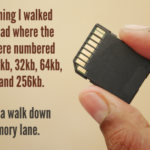Reading as many rulings from judges as I do, you tend to appreciate those with some style and Judge Michael T. Liburdi of the District Court for the District of Arizona definitely has some style. In dismissing a Fair Debt Collection Practices Act case for lack of standing while also chiding the defendant for a lack of “self-awareness” in seeking attorney’s fees and costs, Judge Liburdi goes to great lengths to detail why the receipt of a letter — one which the plaintiff requested — is not enough for the plaintiff to have suffered a concrete injury.
A copy of the ruling in the case of Six v. IQ Data International can be accessed by clicking here.
On August 18, 2021, the plaintiff mailed a dispute letter to a credit reporting agency claiming he had no knowledge of the debt in question and requested documentation verifying the debt. On the same day, the plaintiff’s former attorney sent a letter to the defendant saying that the plaintiff had retained counsel and that all further communication be directed to the attorney. On September 2, the defendant submitted a request to generate and send a letter to the plaintiff providing the documentation that the plaintiff requested. The next day, the defendant updated its records to note that it had received and processed the letter from the attorney and that there should be no further communication with the plaintiff.
The plaintiff filed suit, alleging the letter that was sent with the verification information violated the FDCPA because it should have been sent to his attorney.
The plaintiff argued that his case was similar to those where the receipt of a phone call was enough to confer standing to sue. But, as Judge Liburdi details, the receipt of a letter, especially one requested by the plaintiff, is not the same as the receipt of an unwanted phone call. During his deposition, the plaintiff even testified he didn’t know when the letter was put in his mailbox. “It is difficult to see how a letter delivered to a mailbox, unbeknownst to Six, and to be retrieved at his leisure, in a mailbox where he receives countless articles of correspondence, some desired and some not, results in a harm similar in kind to the irritating intrusion into the peace and quiet of a private and personal realm caused by phone calls and text messages,” Judge Liburdi wrote.
And, it wasn’t until his summary judgment brief that the plaintiff mentioned having suffered any kind of injury or that he took any action after receiving the letter from the defendant. But the lost nights of sleep the plaintiff claimed to have suffered appeared to be related to the existence of the debt and not the receipt of the letter, the judge noted. “Here, if Six’s loss of sleep is driven by the existence of the debt, this harm is suffered regardless of whether IQ Data complied with the FDCPA,” Judge Liburdi wrote. “Nevertheless, as mentioned above, Six’s anger, frustration, and stress are insufficient to establish a concrete injury.”
Regarding the defendant’s request for fees, the judge noted that the plaintiff’s claim was not filed in bad faith or for the purpose of harassment, and that if anyone was guilty of being reckless, it was the defendant. “Ironically, the Court previously found that IQ Data and its counsel recklessly filed a frivolous Rule 11 motion for the bad faith purpose of leveraging a settlement, denied Six’s requests for an extension of time in bad faith, and misrepresented its reasoning for requesting a modification of the Scheduling Order to the Court,” the judge wrote. “Considering this context, IQ Data’s request for attorneys’ fees exhibits a striking lack of self-awareness. It is denied.:









